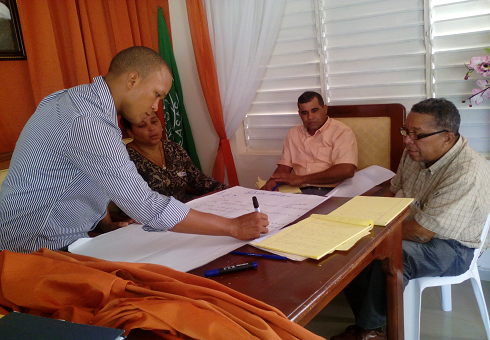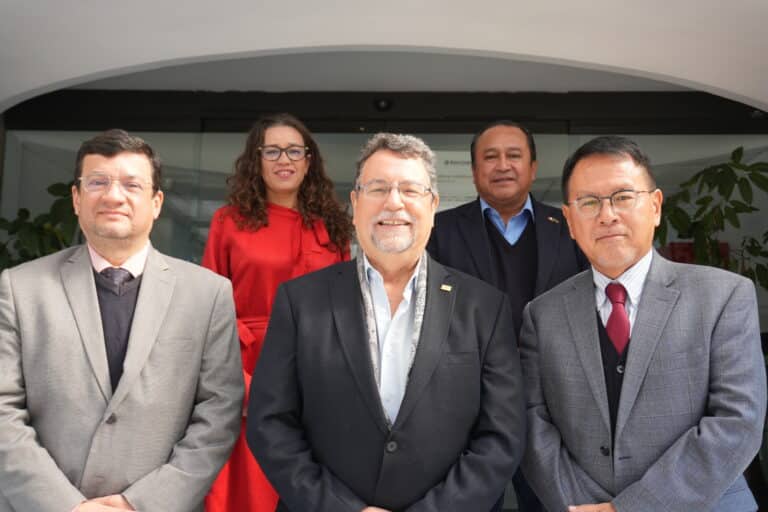The Development Plan 2017 was presented to the Territory Action Task Force
The general objective of the Flagship Project for Inclusion in Agriculture and Rural Territories is «to contribute to the establishment of conditions for countries to design and manage in a participatory manner integrated policies of social, economic and citizen inclusion that address the needs of excluded populations of the rural territories with less relative development and with predominance of the familiar agriculture».
The Development Plan 2017 was presented to the Territory Action Task Force
The general objective of the Flagship Project for Inclusion in Agriculture and Rural Territories is «to contribute to the establishment of conditions for countries to design and manage in a participatory manner integrated policies of social, economic and citizen inclusion that address the needs of excluded populations of the rural territories with less relative development and with predominance of the familiar agriculture».
In order to achieve this general objective, the following specific objectives have been proposed:
- Support the participatory formulation of public policies and institutional frameworks that promote inclusion with emphasis on FA in less developed rural areas
- Contribute an economic inclusion to excluded groups in less developed territories to improve food availability and generate employment opportunities and agricultural and non – agricultural income.
- Support the development of associative capacities, dialogue, proposition and incidence of rural populations, to strengthen the quality and density of the social component of the territory.
- Strengthen the capacities of institutional and social actors and their access to public goods for the knowledge management for inclusion in processes of agricultural and territorial development, with emphasis on excluded groups.
In the Dominican Republic, the Flagship Project: Inclusion has as direct beneficiaries the producers and organizations of producers of the Communities of Las Yayas, Father Las Casas and Guayabal of the Province of Azua; Organized in the Territorial Action Group (GAT) formed as a participatory and community advocacy organization.
For the year 2017, FP Inclusion plans to develop within its activities: two (2) Business Plans to the same number of productive organizations of the aforementioned communities, with which it is possible to identify business potential and their link with the market. At the same time, a training program will be developed in which topics such as: Leadership, Empowerment, Incidence and Organizational Participation, among others.
So far, in coordination and with the participation of the GAT, several coordination and planning meetings have been held for the implementation of the aforementioned activities, receiving from the GAT its total willingness to participate actively to achieve the objectives and goals scheduled for the year.












